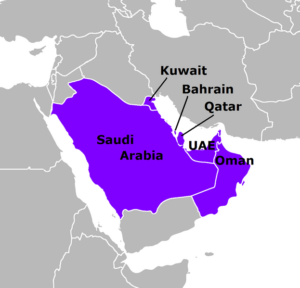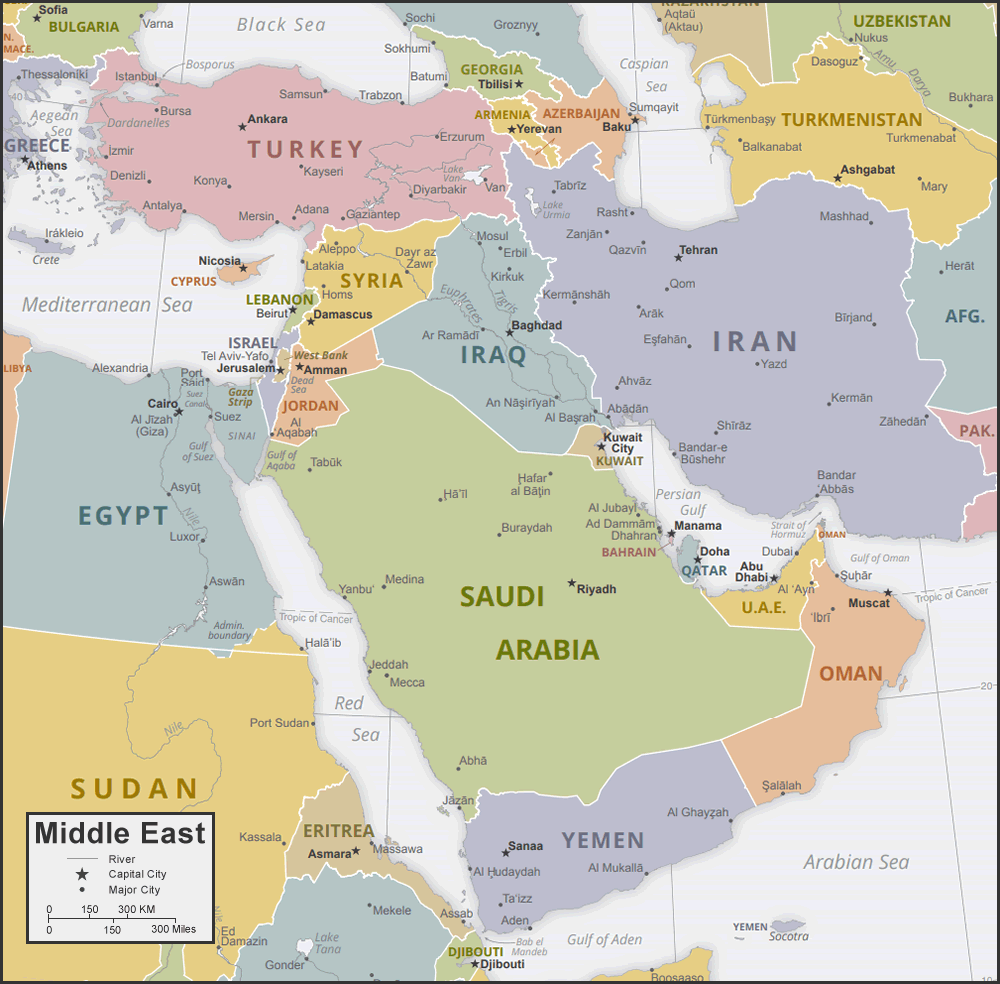What is the GCC? – A Brief Introduction to the Gulf Cooperation Council.
September 9, 2022
A Geographic Perspective:
Border Geography
The Gulf Cooperation Council (GCC) is a collection of States located in the Middle East. It shares land borders with Jordan, Iraq, and Yemen, along with coastal borders to Egypt, Somalia, Sudan, and Eritrea.
The Countries included are:
- Saudi Arabia
- United Arab Emirates (UAE)
- Qatar
- Kuwait
- Oman
- Bahrain

A map of the GCC countries. https://www.hadielfarr.com/gulf-cooperation-council.html
Physical Geology (Topography)
Land within the GCC is diverse – it includes the Arabian Desert, grasslands, mountain ranges, highlands, and volcanic fields. While there are not many permanent bodies of water, flash floods and non permanent rivers are common.

Geography of the Arabian Peninsula http://saudi-archaeology.com/background/geography-arabian-peninsula/
The GCC has a fairly large extent of coastal land compared to its size. It is connected to the Red Sea, Arabian Sea, and Persian Gulf. While it is not connected to the Mediterranean Sea, it is extremely close to it.
Culture Within the GCC:
Infrastructure
Several projects were created in order to improve power and water supplies, along with improvements to transportation systems, specifically railroads.
Government
There are several different levels of government within the GCC, each with its own purpose:
- Supreme Council
- The GCC has a reigning “Supreme Council” which has a representative from each state – typically the head of each state.
- Ministerial Council
- Secretariat General
- Monetary Council
- Patent Office
- Peninsula Shield Force
- GCC Standardization Organization
- Gulf Organization for Industrial Consulting
Language
Arabic is the official language of GCC countries, and dominates the population. Other commonly used languages in the GCC are English and Hindi.
Historical Events and Foundation of GCC:
Creation of the GCC occurred in 1981, following a meeting of several powerful politicians. Several different goals were made to improve all member states of the GCC.
- Common market and currency
- Customs union
- Unification of military, state populations, and regulations
- Creation of new and improved education, science, and technology
Due to the prevalence of oil and natural gas, many of these goals were able to be funded, and the economy has significantly surged.



September 18th, 2022 at 7:00 pm
Something important that helped stimulate the foundation of the GCC was the Iranian Revolution of 1979 and the Iran-Iraq war that followed it, beginning in 1980. The Arab Gulf states had been rivals of Iran when it was ruled by the monarchy, but once it became an Islamic Republic it presented a far more urgent ideological as well as military threat. The non-security aspects of the GCC are very important and have helped generate greater economic growth. But it is important to keep that original security motivation in mind.